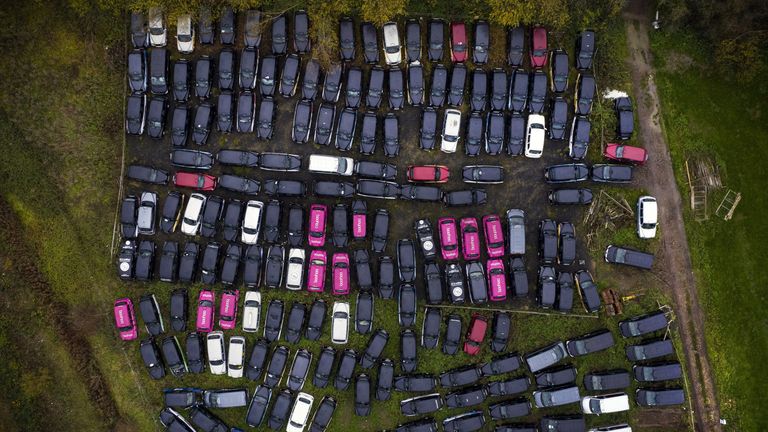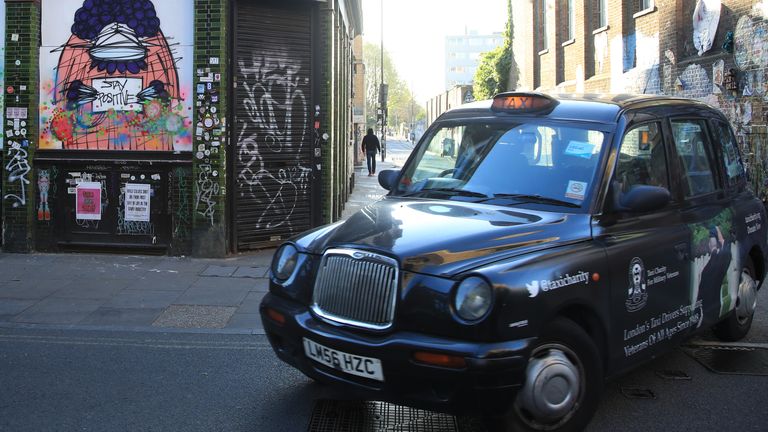Hundreds of London black cabs have been mothballed in fields around the capital because work has dried up during the coronavirus pandemic.
The number of licensed taxis has fallen from 18,900 to 15,000 on 8 November according to Transport for London (TfL) figures obtained by the PA news agency.
And the Licensed Taxi Drivers' Association (LTDA) estimates only one in five cabbies is still driving their vehicle.
General Secretary Steve McNamara described the situation as a "complete and utter nightmare" for cabbies who have "fallen through the gaps" in the Treasury's furlough scheme.
He said some were now on "starvation wages".
Such has been the fall in demand that black cab rental firms have been forced to hire fields and farmland dotted around the edge of the city to store vehicles handed back by drivers in recent months.
North London-based rental company GB Taxi Services has seen the occupation rate of its fleet of 100 black cabs plummet from 95% before the crisis to just 10%, despite halving its fees to encourage drivers to hold on to their vehicles.
It is one of two firms using an area of farmland in Epping Forest, Essex, to store around 220 unwanted taxis so they can stop paying to insure them.
But the plan backfired when intruders stole catalytic converters and diesel particulate filters from around 50 of them.
Simon Georgiou, a director at GB Taxi Services, said: "We got our knees taken away with COVID and loads of vehicles getting handed back. Then this theft happens, which cost in excess of £120,000. We're in a right mess."
Another rental firm, Sherbet London, has hired a car park to help store 400 unoccupied cabs, representing two-thirds of its fleet.
The latest LTDA figures reveal just how drastic the fall in demand has been.
Cab drivers arriving at Heathrow Airport's taxi feeder park last month waited an average of nine hours before being dispatched to pick up a passenger.
Cabbie Andy Biggs, 63, says he is lucky if he gets three customers a day.
"When we first went back after the initial lockdown, things started to get a little bit better very slowly," he said. "But now it's as dead as it's ever been."




